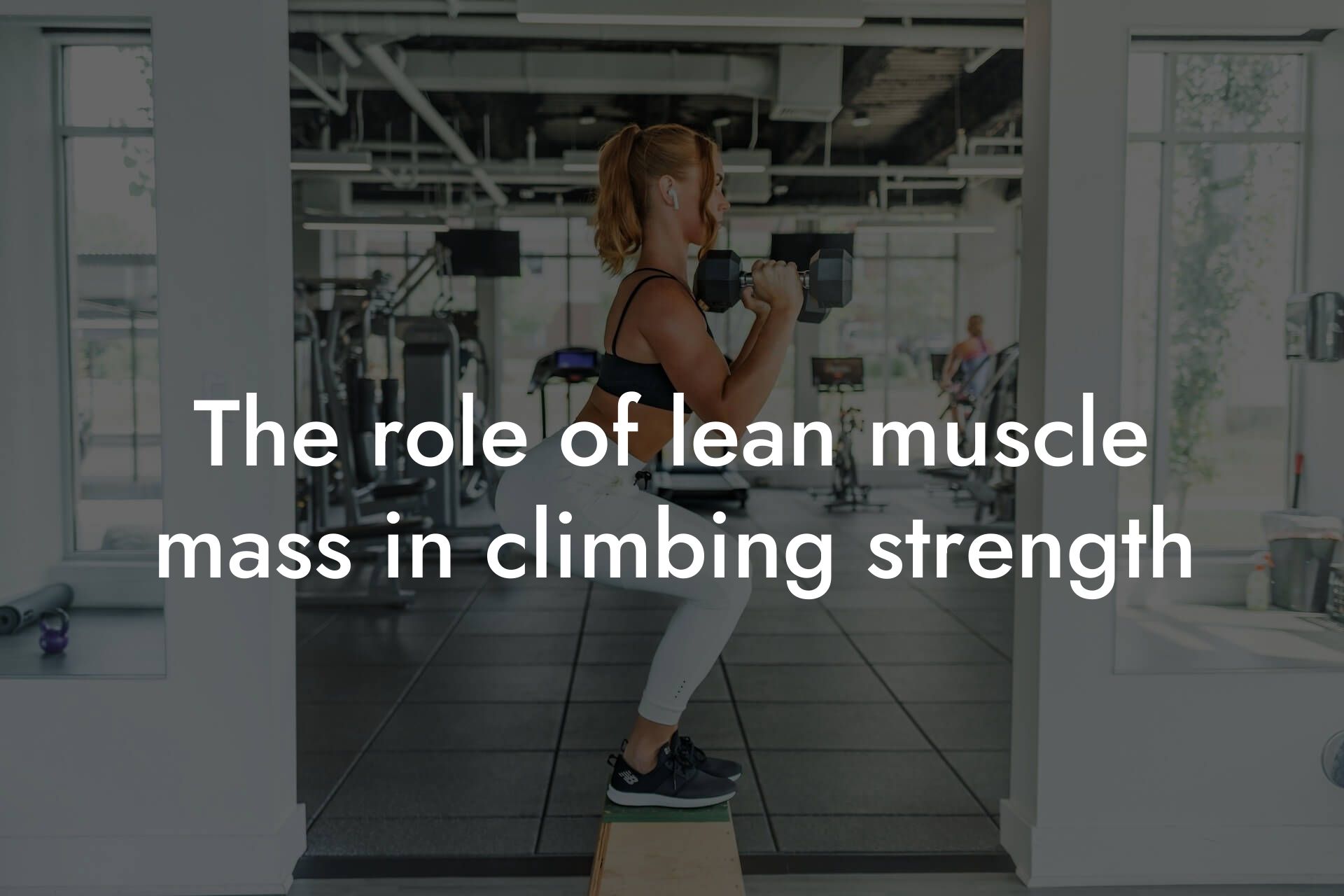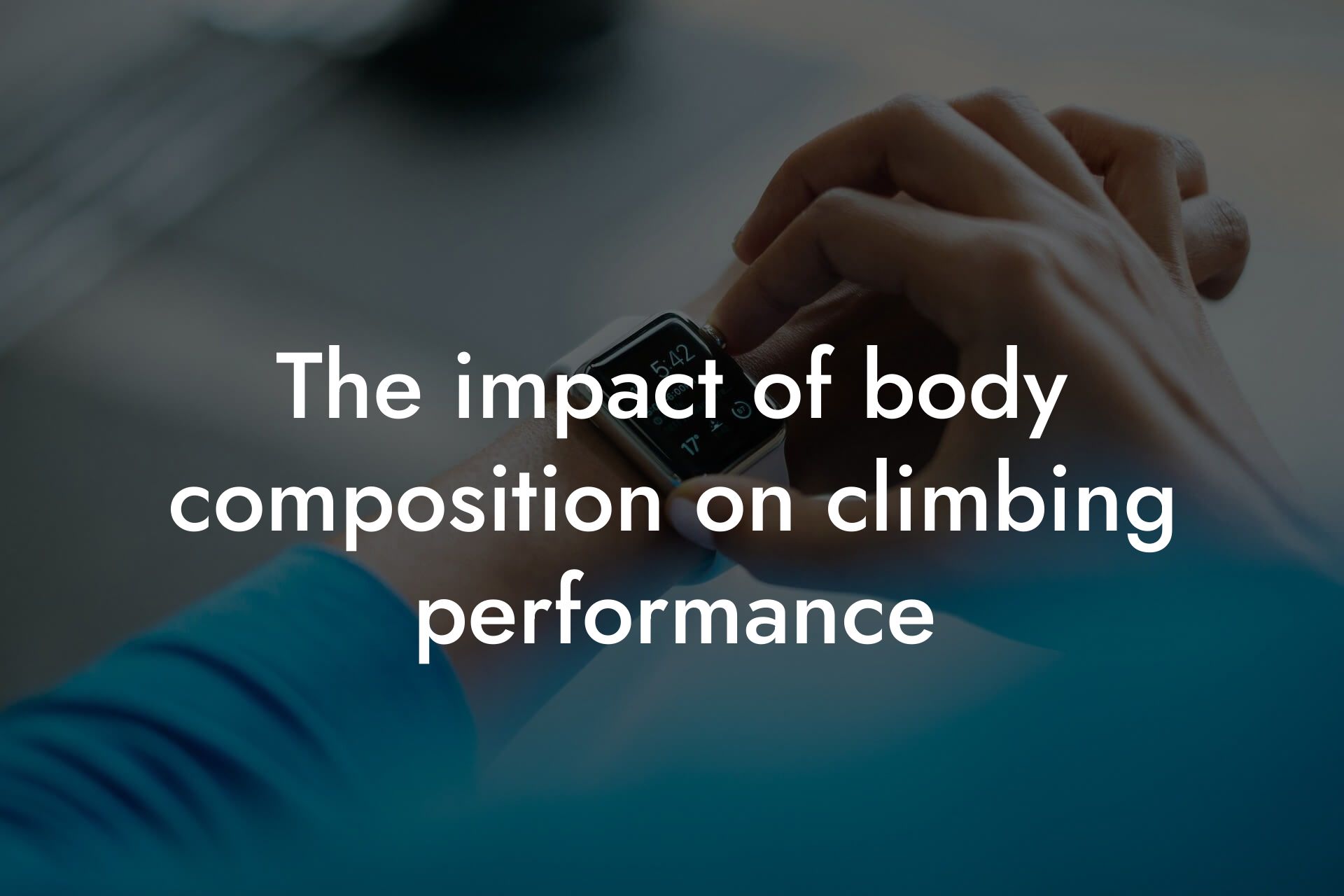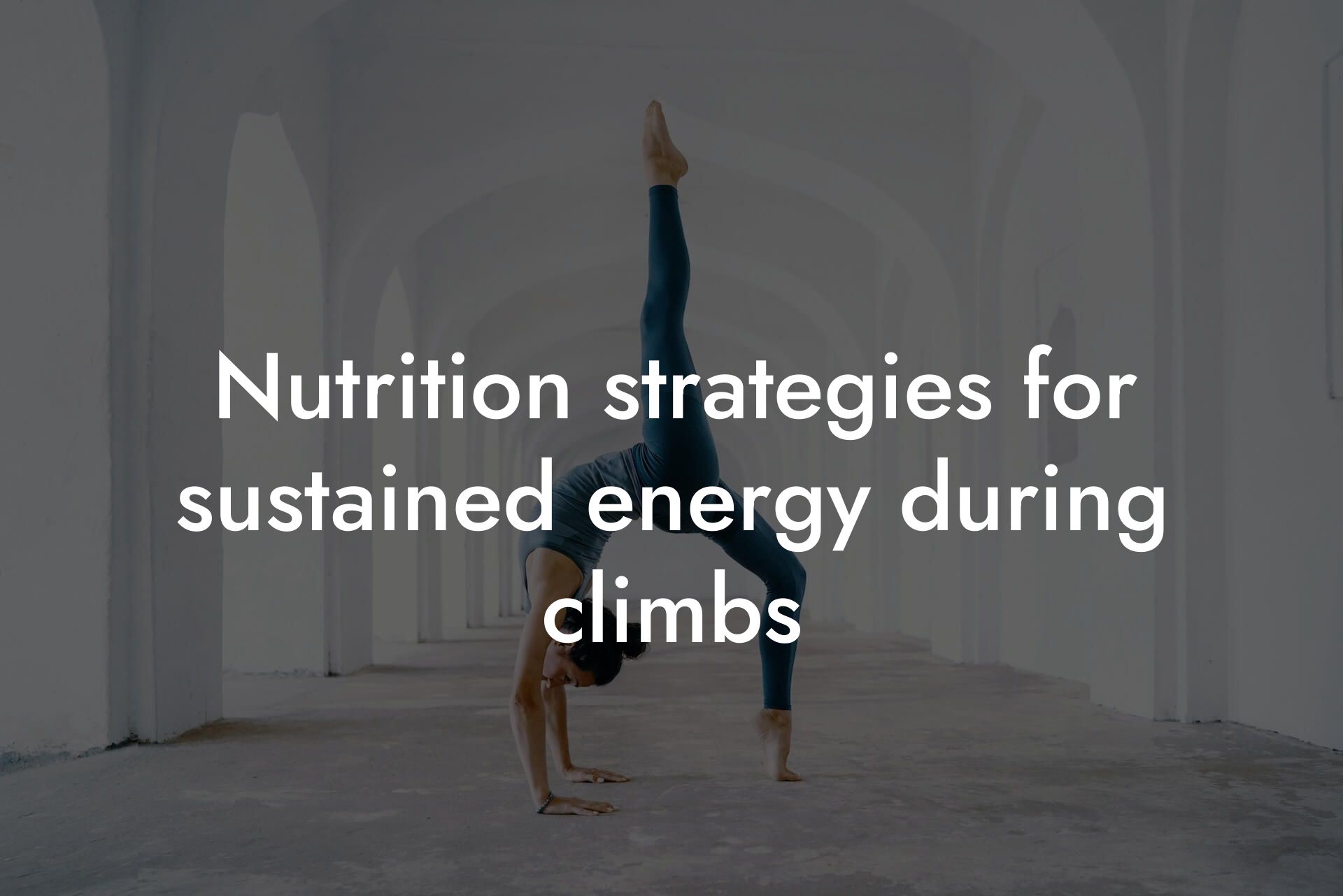As a climber, you understand the importance of monitoring your progress and optimizing your training to achieve peak performance. One of the most effective tools in your arsenal is the Dual-Energy X-ray Absorptiometry (DEXA) scan. This advanced technology provides a comprehensive assessment of your body composition, bone density, and muscle mass, giving you valuable insights to fine-tune your training and nutrition. In this article, we'll delve into the world of DEXA scans and explore how they can help you take your climbing to new heights.
Table of Contents
What is a DEXA Scan?
A DEXA scan is a non-invasive, painless medical test that uses low-level X-rays to measure the density of your bones, muscles, and body fat. The scan takes only a few minutes to complete and provides a wealth of information about your body composition. The technology is commonly used to diagnose and monitor osteoporosis, but its applications extend far beyond bone health. For climbers, DEXA scans offer a unique opportunity to gain a deeper understanding of their body and optimize their performance.
How Does a DEXA Scan Work?
The DEXA scan process is straightforward and quick. You'll lie down on a comfortable table, and the scanner will pass over your body, emitting low-level X-rays. The machine will then measure the absorption of these X-rays by your body tissues, providing a detailed breakdown of your body composition. The scan is completely painless and doesn't require any preparation or special clothing.
What Can a DEXA Scan Measure?
A DEXA scan can measure a wide range of parameters, including:
- Bone density: This is essential for climbers, as it helps identify any potential weaknesses in your bones that could increase your risk of injury.
- Body fat percentage: This measurement helps you track changes in your body composition and optimize your nutrition and training for improved performance.
- Lean mass: This includes your muscle mass, which is critical for generating power and endurance on the wall.
- Visceral fat: This is the fat that surrounds your organs and can increase your risk of chronic diseases.
- Total body water: This measurement helps you track changes in your hydration levels and optimize your fluid intake.
Why Are DEXA Scans Important for Climbers?
As a climber, you're constantly pushing your body to new limits. DEXA scans provide a unique opportunity to gain a deeper understanding of your body's response to training and nutrition. By tracking changes in your body composition, bone density, and muscle mass, you can:
- Optimize your training: Identify areas where you need to improve your strength, power, or endurance, and adjust your training program accordingly.
- Monitor injury risk: Identify potential weaknesses in your bones or muscles that could increase your risk of injury, and take proactive steps to address them.
- Improve nutrition: Fine-tune your diet to support muscle growth, recovery, and overall performance.
- Enhance recovery: Use DEXA scan data to optimize your recovery strategies and reduce muscle soreness.
How Often Should Climbers Get a DEXA Scan?
The frequency of DEXA scans depends on your individual goals and training program. As a general rule, it's recommended to get a scan every 3-6 months to track changes in your body composition and bone density. This allows you to:
- Monitor progress: Track changes in your body composition and bone density over time, and adjust your training and nutrition accordingly.
- Identify trends: Catch any negative trends or plateaus early, and make data-driven decisions to optimize your performance.
- Stay motivated: Use DEXA scan data to stay motivated and focused on your goals, and celebrate your progress along the way.
What to Expect from a DEXA Scan at Tano Performance Group
At Tano Performance Group, we're dedicated to providing high-earning professionals like you with the tools and expertise you need to take your physical performance to the next level. Our state-of-the-art DEXA scan technology provides a comprehensive assessment of your body composition, bone density, and muscle mass. Our team of experts will work with you to interpret the data, identify areas for improvement, and develop a personalized training and nutrition plan to help you achieve your goals.
DEXA scans are a powerful tool for climbers, offering a unique opportunity to gain a deeper understanding of your body and optimize your performance. By tracking changes in your body composition, bone density, and muscle mass, you can fine-tune your training and nutrition, reduce your risk of injury, and take your climbing to new heights. At Tano Performance Group, we're committed to helping you unlock your full potential and achieve your goals. Contact us today to schedule your DEXA scan and take the first step towards peak performance.
Frequently Asked Questions
What is a DEXA scan and how does it work?
A DEXA (Dual-Energy X-ray Absorptiometry) scan is a non-invasive, painless medical imaging test that measures bone density, lean mass, and body fat percentage. It uses low-level X-rays to produce images of the body's internal structures, allowing healthcare professionals to assess bone health, muscle mass, and body composition.
Why is DEXA scanning important for climbers?
DEXA scanning is essential for climbers because it provides valuable insights into their bone density, muscle mass, and body fat percentage. Climbing requires strong bones, muscles, and a lean physique, and DEXA scans help identify areas for improvement, reducing the risk of injuries and optimizing performance.
How often should I get a DEXA scan as a climber?
We recommend getting a DEXA scan every 6-12 months to monitor progress, track changes in body composition, and adjust training and nutrition plans accordingly. This frequency allows for timely adjustments to prevent plateaus and optimize performance.
What are the benefits of using DEXA scans for climbers?
DEXA scans provide climbers with accurate, objective data to inform their training and nutrition plans. Benefits include improved bone density, increased lean mass, optimized body fat percentage, enhanced performance, and reduced risk of injuries.
How does DEXA scanning help with injury prevention?
DEXA scans identify areas of low bone density, muscle imbalances, and body fat distribution, allowing climbers to target specific areas for improvement. This proactive approach helps prevent injuries, such as stress fractures, and reduces downtime.
Can DEXA scans help me optimize my nutrition plan?
Yes, DEXA scans provide valuable insights into body composition, allowing climbers to tailor their nutrition plan to support muscle growth, bone health, and optimal body fat percentage. This personalized approach ensures climbers fuel their bodies for peak performance.
How do DEXA scans differ from other body composition tests?
DEXA scans are more accurate and comprehensive than other body composition tests, such as bioelectrical impedance analysis (BIA) or skinfold measurements. DEXA scans provide detailed information on bone density, lean mass, and body fat percentage, making them the gold standard for body composition analysis.
Are DEXA scans safe and painless?
Yes, DEXA scans are completely safe and painless. They use low-level X-rays, which are much safer than traditional X-rays, and do not require any injections, invasive procedures, or physical exertion.
How long does a DEXA scan take?
A DEXA scan typically takes 10-15 minutes to complete, depending on the type of scan and the individual's body composition.
What do I need to do to prepare for a DEXA scan?
To prepare for a DEXA scan, avoid eating for at least 2 hours prior to the scan, wear loose, comfortable clothing, and remove any metal objects, such as jewelry or glasses. It's also essential to inform the technician of any medications or supplements that may affect the scan's accuracy.
How do I interpret the results of my DEXA scan?
A healthcare professional will interpret the results of your DEXA scan, providing you with a detailed report outlining your bone density, lean mass, and body fat percentage. They will also offer personalized recommendations for improvement and optimization.
Can I use DEXA scans to track my progress over time?
Yes, DEXA scans are an excellent tool for tracking progress over time. By comparing scans taken at regular intervals, climbers can monitor changes in body composition, bone density, and lean mass, making adjustments to their training and nutrition plans as needed.
How does DEXA scanning help with goal setting and planning?
DEXA scans provide climbers with objective data to set specific, measurable, and achievable goals. By identifying areas for improvement, climbers can create targeted training and nutrition plans, ensuring they're on track to reach their goals.
Can DEXA scans help me identify muscle imbalances?
Yes, DEXA scans can help identify muscle imbalances by providing detailed information on lean mass distribution. This information allows climbers to target specific muscle groups for improvement, reducing the risk of injuries and optimizing performance.
How does DEXA scanning support overall health and wellness?
DEXA scans provide valuable insights into overall health and wellness by assessing bone density, lean mass, and body fat percentage. This information enables climbers to make informed decisions about their lifestyle, nutrition, and training, promoting overall health and wellness.
Are DEXA scans only for elite climbers?
No, DEXA scans are beneficial for climbers of all levels, from recreational to elite. They provide valuable insights into body composition, bone density, and lean mass, helping climbers optimize their performance and reduce the risk of injuries.
Can I use DEXA scans to monitor my progress in other sports or activities?
Yes, DEXA scans are not limited to climbing. They can be used to monitor progress in other sports or activities, such as running, cycling, or swimming, providing valuable insights into body composition, bone density, and lean mass.
How do I find a qualified technician or healthcare professional to perform my DEXA scan?
To find a qualified technician or healthcare professional, search for certified DEXA scan providers in your area. Look for professionals with experience in working with athletes and climbers, and ensure they use high-quality DEXA scan machines.
What is the cost of a DEXA scan, and is it covered by insurance?
The cost of a DEXA scan varies depending on the location, technician, and type of scan. Some insurance plans may cover DEXA scans, especially if they're medically necessary. Check with your insurance provider to determine coverage and costs.
How does Tano Performance Group support climbers with DEXA scanning?
Tano Performance Group offers expert guidance and support for climbers, providing access to certified DEXA scan technicians, personalized coaching, and tailored training and nutrition plans. Our team helps climbers optimize their performance, reduce the risk of injuries, and achieve their goals.
What if I have more questions about DEXA scanning or my results?
If you have more questions about DEXA scanning or your results, don't hesitate to reach out to our team at Tano Performance Group. We're committed to providing you with the support and guidance you need to optimize your performance and achieve your goals.
Here are some related articles you might love...
- The role of lean muscle mass in climbing strength
- The impact of body composition on climbing performance
- Nutrition strategies for sustained energy during climbs
- Off-season training strategies for climbers
- Balancing strength, endurance, and flexibility in climbing
- Recovery techniques for climbers after intense sessions
- Strength training programs for amateur climbers
- Reducing body fat for better climbing efficiency
- Bone density and injury prevention in climbing
Zak Faulkner
Zak Faulkner is a leading authority in the realm of physical health and body composition analysis, with over 15 years of experience helping professionals optimise their fitness and well-being. As one the experts behind Tano Performance Group, Zak has dedicated his career to providing in-depth, science-backed insights that empower clients to elevate their physical performance and overall health.
With extensive knowledge of DEXA technology, Zak specializes in delivering comprehensive body assessments that offer precise data on body fat, muscle mass, bone density, and overall physique. His expertise enables individuals to make informed decisions and achieve their fitness goals with accuracy and confidence. Zak’s approach is rooted in a deep understanding of human physiology, combined with a passion for helping clients unlock their full potential through personalised strategies.
Over the years, Zak has earned a reputation for his commitment to excellence, precision, and client-focused service. His guidance is trusted by top professionals who demand the best when it comes to their health. Whether advising on fitness programs, nutritional strategies, or long-term wellness plans, Zak Faulkner’s insights are a valuable resource for anyone serious about taking their health and fitness to the next level.
At Tano Performance Group, Zak continues to lead our Content Team revolutionising how professionals approach their physical health, offering unparalleled expertise that drives real results.




